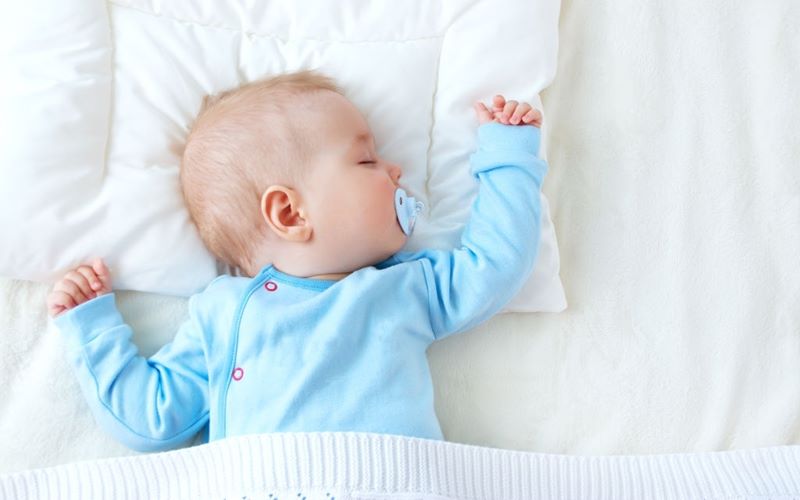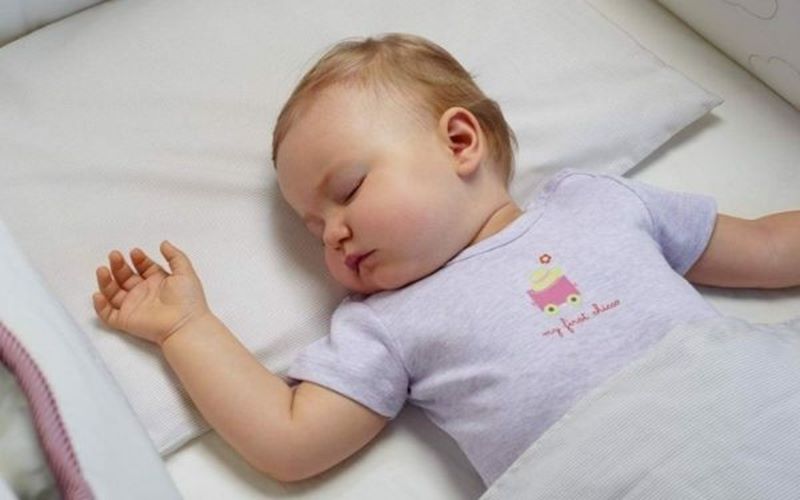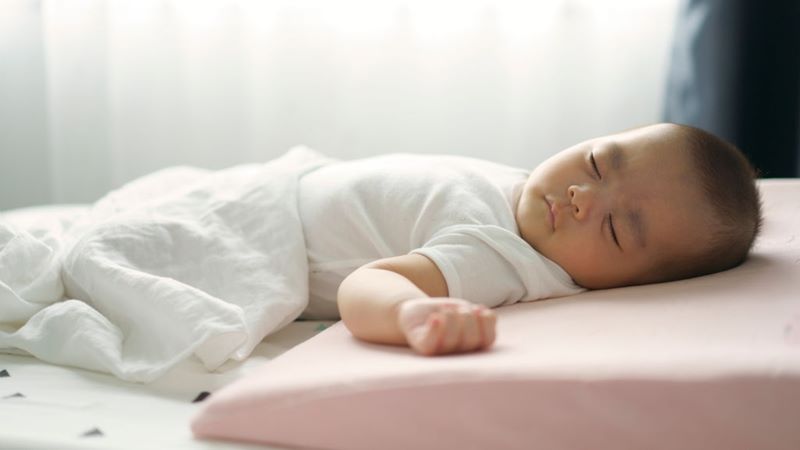Sleep plays an incredibly significant role in the development of children, especially newborns. So, should infants be using pillows while sleeping, and what are the implications? Let’s explore this topic further.
1 Should Infants Use Pillows?
Medical experts advise against the use of pillows for newborns, especially those only a few weeks old. This is because their spinal column is still very straight and lacks the curvature of an adult’s spine. Consequently, when sleeping on their back, the baby’s back and neck lie flat, rendering a pillow unnecessary.
Moreover, at this stage, the width of their shoulders and head is roughly the same, so using a pillow may cause discomfort and a sense of entanglement.
 Should infants use pillows?
Should infants use pillows?
2 Potential Dangers of Using Pillows Too Early
Introducing a pillow too soon can impact your baby’s health and development. Some potential risks include:
- Increased risk of suffocation during sleep
- Overheating due to non-breathable fabric
- Higher chances of spinal deformities
- Elevated risk of Sudden Infant Death Syndrome (SIDS), commonly occurring in infants under one year old
- Positional plagiocephaly, or flat head syndrome, caused by prolonged sleeping on one side
 Potential dangers of using pillows too early
Potential dangers of using pillows too early
3 Best Time to Introduce a Pillow
Research suggests that the ideal time to introduce a pillow is around three months of age, as this is when the baby starts developing physiological curves in the neck and shoulder area. However, avoid adult-sized pillows and opt for smaller ones suitable for infants.
When your baby reaches six to eight months, the second physiological curve forms, and their shoulders broaden. At this stage, you can introduce slightly taller pillows, around 3-4 cm in height. By the time your baby turns one, you can provide a regular pillow and mattress, as their physiological curves and body have fully developed.
 Best time to introduce a pillow
Best time to introduce a pillow
4 How to Choose the Right Pillow for Your Baby
Firmness: Avoid extremely soft or hard pillows. Soft pillows can increase the risk of SIDS, while hard pillows may cause discomfort and pain.
Size: Opt for a pillow with a width similar to your baby’s shoulders, approximately 40cm x 30cm. Choose pillows according to their age.
Material: For a comfortable and breathable option, choose soft and airy fabrics. Natural cotton filling allows for easy adjustment of pillow height as your baby grows.
 How to choose the right pillow for your baby
How to choose the right pillow for your baby
5 Frequently Asked Questions About Baby Pillows
Are latex pillows suitable for babies?
Latex pillows are ideal during hot weather as they keep the baby’s head dry and less sweaty. They also help maintain proper sleeping posture and prevent head deformities. However, latex pillows are only recommended for children over two years old.
Are concave pillows recommended for newborns?
Ria Lopez Campos, a safe sleep expert, advises against the use of concave pillows. When a baby’s head sinks into the pillow, it restricts movement. If the baby turns their head, their face may become covered, leading to potential suffocation.
 Frequently asked questions about baby pillows
Frequently asked questions about baby pillows
We hope this article has provided valuable insights into the use of pillows for newborns, offering helpful information for caring for your little one.
Source: Eastern Hospital
































